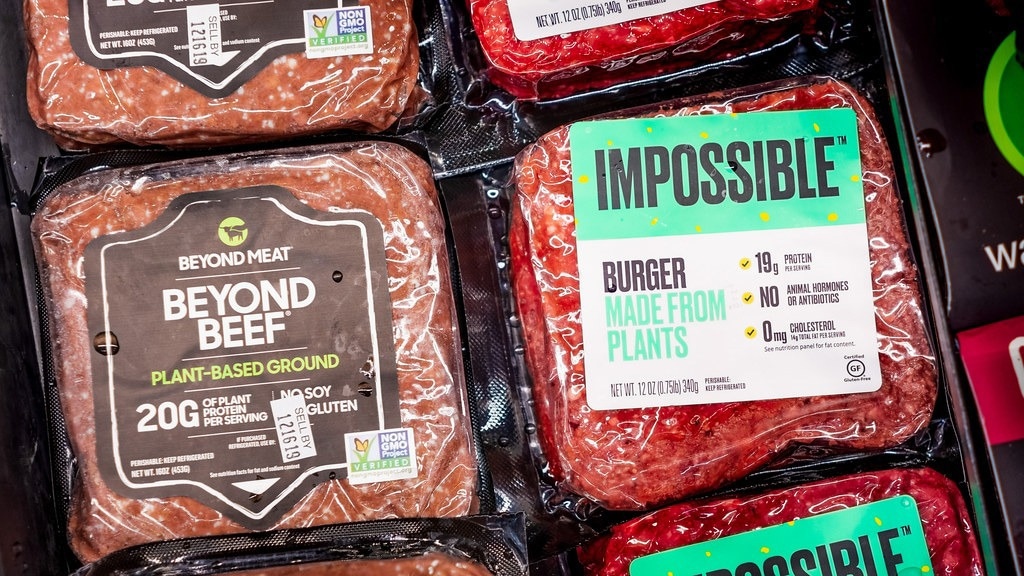According to the authors of a new study, plant-based dietary substitutes for animal products are healthier for both the environment and people than the animal products they are meant to replace.
 The review from Chris Bryant considered environmental and health factors associated with plant-based meat products. Image credit: AdobeStock.
The review from Chris Bryant considered environmental and health factors associated with plant-based meat products. Image credit: AdobeStock.
These foods are a much more effective means of reducing demand for meat and dairy than plainly advising people to prepare vegetarian whole foods because they are “specifically formulated to replicate the taste, texture, and overall eating experience of animal products.”
The research was published in the Future Foods journal.
According to research, which was done by psychologists at the University of Bath, plant-based meat and dairy substitutes “offer a healthier and more environmentally sustainable solution that takes into account consumer preferences and behavior.”
The review analyzed 43 studies on the effects of plant-based diets on human health, the environment, and consumer attitudes. Almost 90% of consumers who reported eating plant-based meat and dairy were actually meat eaters or flexitarians, according to one study. Another found that plant-based products with the same flavor, texture, and cost as processed meat had the best chance of replacing meat.
The study also discovered that compared to the animal products they were replacing, these plant-based goods produced less greenhouse gas emissions. According to one study, pea protein could reduce CO2 emissions by up to eight million tons annually by replacing 5% of German beef consumption. Another discovered that plant-based burgers had up to 98% fewer greenhouse gas emissions than beef burgers.
According to the authors of the report, compared to animal products, plants usually require a lot less agricultural land, water, and pollution.
According to studies on the nutritional profiles of plant-based products, they generally have better nutritional profiles than animal products. For example, one paper found that just 14% of plant-based alternatives were classified as “less healthy” in the UK, compared to 40% of conventional meat products.
Others discovered that plant-based meat and dairy could benefit those with particular medical conditions by promoting muscle growth and weight loss. To increase the amount of amino acids, vitamins B and E, and antioxidants in plant-based foods, food producers may be able to add ingredients like edible fungi, microalgae, or spirulina. Future advancements in processing and ingredient technology are probably going to result in even better nutrition.
Increasingly we’re seeing how plant-based products are able to shift demand away from animal products by appealing to three essential elements consumers want: taste, price and convenience.”
Dr Chris Bryant, Study Author, Department of Psychology, University of Bath
Dr Chris Bryant says, “This review demonstrates overwhelming evidence that, as well as being far more sustainable compared to animal products in terms of greenhouse gas emissions, water use and land use, plant-based animal product alternatives also have a wide range of health benefits.”
Despite the incredible advances that plant-based producers have made over recent years, there is still huge potential to improve their taste, texture and how they cook. There’s also enormous potential to innovate with ingredients and processes to improve their nutritional properties—for example by boosting vitamin content.”
Dr Chris Bryant, Study Author, Department of Psychology, University of Bath
The authors emphasize that while these products have health advantages over meat, individual factors such as total calorie intake and level of activity will also have an impact on health. More information about vegetarian or vegan diets and transitioning to more plant-based products can be found on the NHS websites: The vegetarian diet or The vegan diet.
To make these improvements a reality, according to Dr Bryant, more research is now required. This will enable manufacturers to create goods that taste better, are healthier, and give consumers sustainable options that are more likely to decrease demand for meat.
Source:
Journal reference:
Bryant, C. J., et al. (2022) Plant-Based Animal Product Alternatives Are Healthier and More Environmentally Sustainable than Animal Products. Future Foods. doi.org/10.1016/j.fufo.2022.100174.